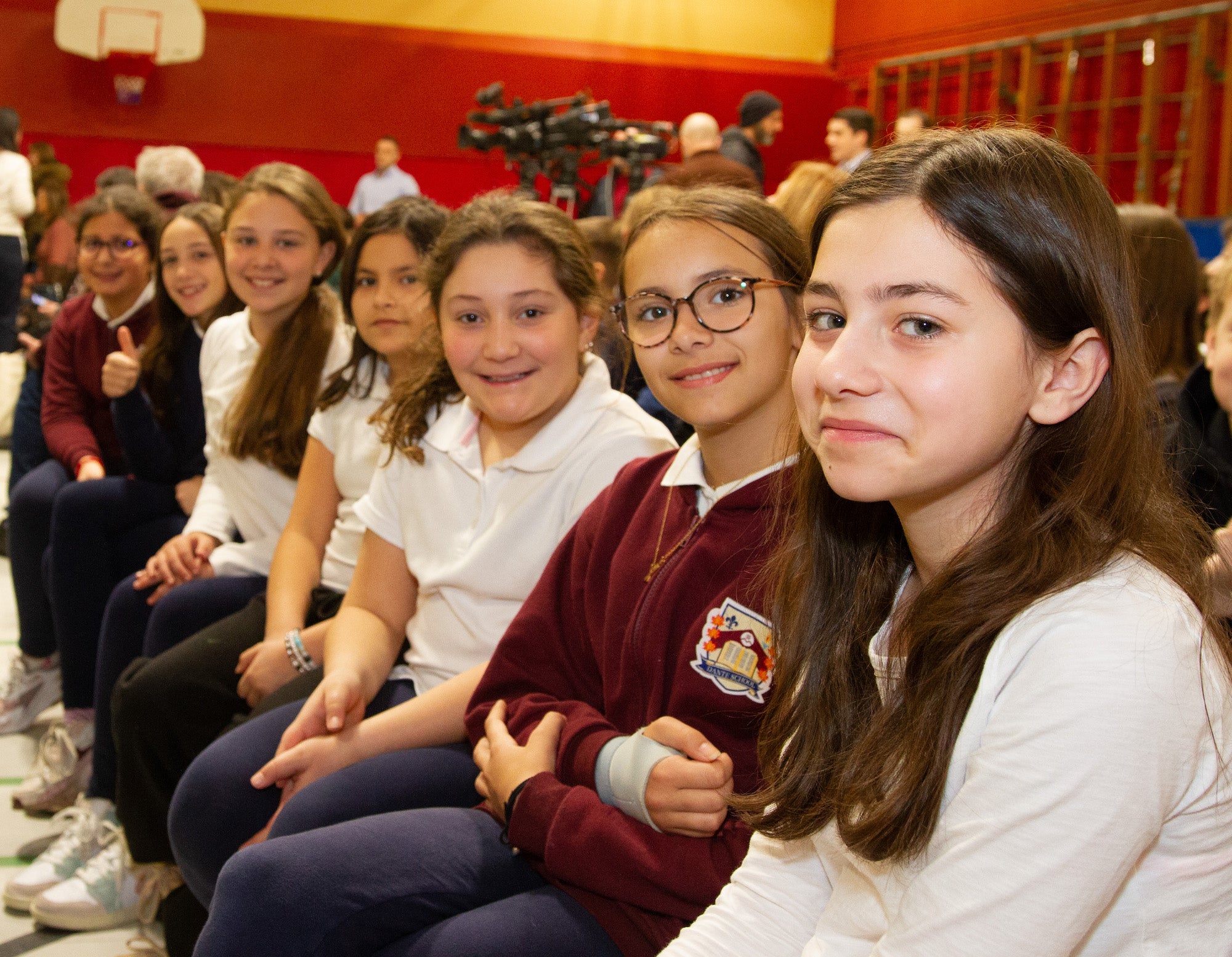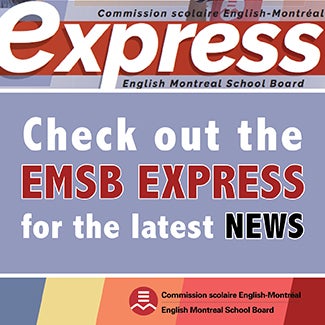Art and music teachers expand appreciation of Quebec culture and the French language

Willingdon Elementary School
Nick Batzios is the music specialist at Willingdon Elementary School in NDG, where he has been teaching for 25 years. As a practicing musician himself – he sings, plays the piano and the guitar – music is not only integral to his own life but also to his teaching profession. He sees teaching music as a way to increase brain health and improve cognitive functioning.
It also helps facilitate the learning of a language more quickly. For his mostly anglophone students, learning French as a second language through song, for example, helps improve their speaking, reading and writing, he said.
Music class is a place to shed academic differences and come together as a choir or an instrumental ensemble. In terms of singing, it incorporates everyone, he explains, from the students who have a good facility in French to those who find it more challenging – and everyone in between. “However they are doing in their other classes, they all sing in French – every single one of them!” he said proudly.
All the songs students in Mr. Batzios’ music class learn are in French. He says music education facilitates academic achievement by recalling and retaining verbal information. Singing French songs in music class helps students learn how to read, write and speak French quickly and effectively.
Teaching a different language through music not only has academic benefits, where students learn about accents and cadence, and how to pronounce words, it also opens the door into another culture. Often, Mr. Batzios introduces a Québécois folk song, which harkens back to an older time and can sometimes be traced to a certain town or village. “There’s a lot in the music – especially rhythm,” he says.
In fact, “Mr. Nick,” as he is called by his students, is a proponent of teaching songs in different languages. His school concerts have a varied program that always include songs in both English and French, and he has introduced other languages such as Greek, Hebrew and Italian in past concerts. He recalls the performance of a Greek Christmas song by Grade 2 and 3 students one year. “They all sang it perfectly,” he said.
The concerts, which he looks forward to organizing every year, give students a chance to show off their skills to their families and friends in instrumental performances and singing in other languages. Mr. Batzios says these concerts raise their self-esteem and provide a sense of belonging.
Dunrae Gardens
Art teacher Michael Venditti says there is great openness to learning in French at Dunrae Gardens, especially through art. Multilingual himself, and a visual artist in mixed media, he teaches art to all grade levels at the French immersion school based in the Town of Mount Royal. He describes himself as an “artist who teaches.”
He teaches his classes in French and attributes the school’s culture of openness as the recipe for success in an immersion setting. His approach is to allow for students to express themselves how they can, artistically and verbally, and in French as much as they can.
Students in Mr. Venditti’s art classes, as early as Grade 1, are introduced to the great art movements originating in Germany and France, and from all parts of the globe. He explained that he can refer to the ample material associated with those art periods to teach about art and artists from different countries. And he also turns the focus on local art and artists, saying that Montreal is a great city in which to learn about and appreciate art, drawing on its multicultural make-up.
He invites Montreal-based artists in to speak to his students in French, and because it’s a French Immersion school, he asks even those who are not francophones to present in French. “It’s a very non-judgmental atmosphere at our schools - and welcoming of French because we’re all part of the Montreal community,” he says. “We see ourselves as a very united and international community at Dunrae Gardens.”
Art classes are as much about creating art as discussing it, Mr. Venditti explains. The different creations and interpretations coming out of the same assignment makes for interesting and lively discussion in his classroom, further encouraging dialogue in French. “It’s an open forum that helps with the appreciation of art,” he says. He encourages an “around-the-table" approach to discussion and encourages children to talk about their art.
Pierre Elliott Trudeau Elementary School
At Pierre Elliott Trudeau Elementary School in Rosemount, teacher Arianne Asly-Verdon is busy. She teaches music to students in every grade level, from pre-K to Grade 6, including the SEEDS classes. And in Grade 1 and 2, she teaches drama.
Her classes are given in French, with explanation provided in English where needed. She says some students are fully bilingual and switch seamlessly between English and French – which is true to her own background, growing up with one francophone parent and the other English.
In drama class, students create their own short skits in French. One assignment is to create their own witch’s brew. Working in teams, students create a storyline and then act out the parts. They are encouraged to perform their skits in French, and while it is difficult for some, they end up finding a way to express themselves in a language other than their mother tongue, Ms. Asly-Verdon said. One part of the assignment is to use their imagination to come up with special words for the magic potions in their skit.
Acting is a great way to feel less inhibited speaking in a different language, she explained.
In Ms. Asly-Verdon's music classes, several different languages can be heard in their songs. She said they sing songs celebrating Hanukkah, Kwanzaa, and she has even introduced songs in Hawaiian and Latin! "Kids love it!” she said, even when the language isn’t familiar. “There is a huge power in singing.”
About the English Montreal School Board
With a youth and adult sector population of more than 35,000 students, the English Montreal School Board (EMSB) is the largest English public school board in Quebec. Established on July 1, 1998, when the province created new boards along linguistic lines, the EMSB network consists of 73 schools and centres. For more details, visit the EMSB website at www.emsb.qc.ca.










